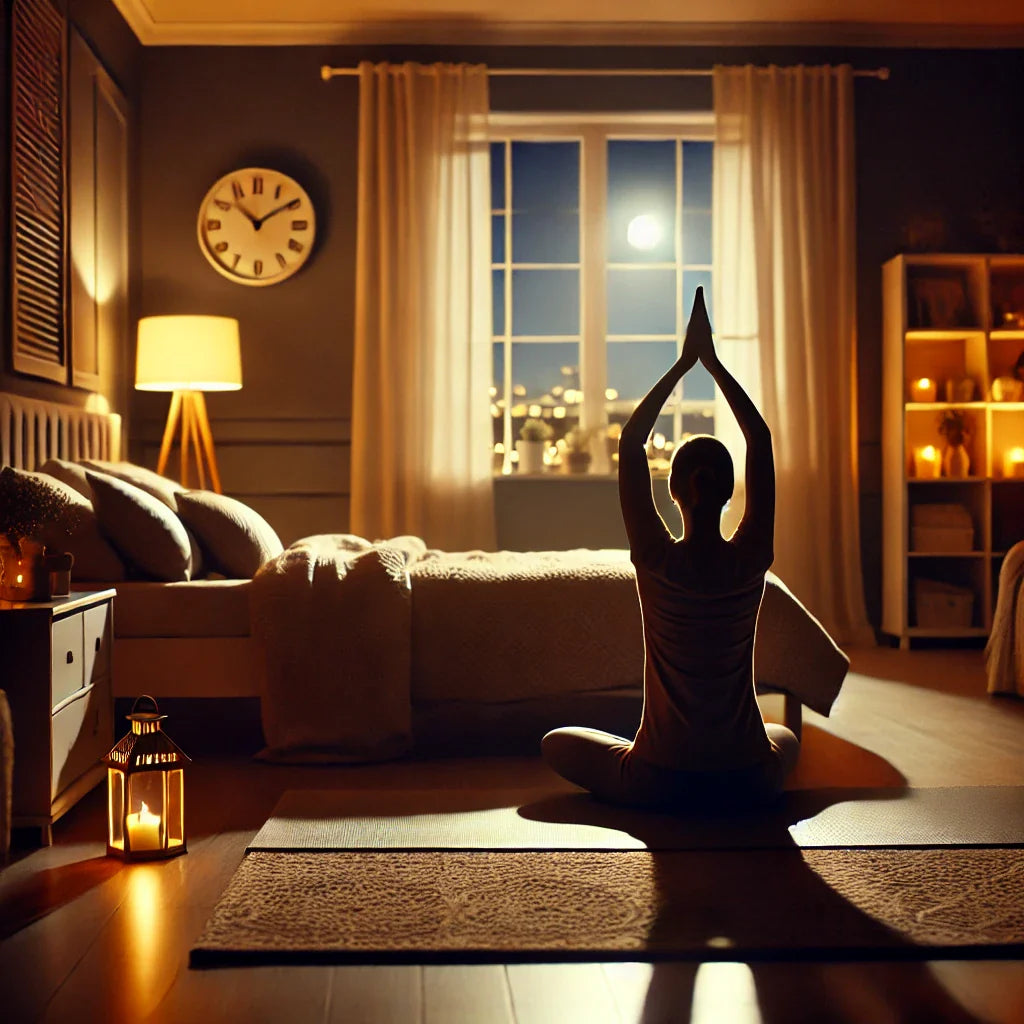
Foods to Eat for Better Sleep
Share
We’ve all had those nights—tossing, turning, checking the clock every 10 minutes, and waking up feeling like you barely slept. But what if improving your sleep quality could start with what’s on your plate? Certain nutrients play a key role in supporting relaxation, melatonin production, and overall sleep health. Here are some of the best sleep-boosting nutrients and where to find them in your diet.
1. Magnesium – The Relaxation Mineral
Magnesium is a powerhouse when it comes to relaxation. It helps regulate neurotransmitters that promote calmness and supports the production of melatonin, the sleep hormone. Low magnesium levels can contribute to restless sleep and even insomnia.
Best sources of magnesium:
-
Dark leafy greens (spinach, kale)
-
Nuts and seeds (almonds, cashews, pumpkin seeds)
-
Whole grains (quinoa, brown rice)
-
Dark chocolate (yes, an excuse to eat chocolate before bed!)
2. Melatonin – The Sleep Hormone
Melatonin is what tells your body it’s time to sleep. While your body naturally produces it, eating foods rich in melatonin can support a more consistent sleep cycle, especially if you struggle with falling asleep.
Best sources of melatonin:
-
Tart cherries
-
Bananas
-
Grapes
-
Oats
-
Walnuts
3. Tryptophan – The Sleep-Inducing Amino Acid
Ever felt drowsy after eating turkey at Christmas? That’s because turkey contains tryptophan, an amino acid that helps produce serotonin, which then converts into melatonin. Consuming tryptophan-rich foods can help your body wind down more easily at night.
Best sources of tryptophan:
-
Turkey and chicken
-
Eggs
-
Dairy products (milk, yogurt, cheese)
-
Nuts and seeds (especially sunflower and pumpkin seeds)
-
Tofu and soy products
4. Potassium – The Muscle Relaxer
Potassium plays a key role in muscle relaxation and can help prevent nightime cramps that disrupt sleep. It also supports heart function and blood pressure regulation, both of which contribute to a calmer, more restful night.
Best sources of potassium:
-
Bananas
-
Sweet potatoes
-
Avocados
-
Beans and lentils
-
Oranges
5. Vitamin D – The Sunshine Nutrient
Vitamin D is mostly known for its role in bone health, but it’s also essential for regulating sleep. Low levels of vitamin D have been linked to poor sleep quality and even insomnia. Since most of us don’t get enough sun exposure (especially in winter), diet and supplementation can help.
Best sources of vitamin D:
-
Fatty fish (salmon, mackerel, sardines)
-
Egg yolks
-
Mushrooms
-
Fortified foods (milk, orange juice, cereals)
How to Build a Sleep-Optimising Evening Routine
-
Dinner: A balanced meal with protein (for tryptophan), complex carbs (to help absorb tryptophan), and healthy fats.
-
Evening Snack: A banana with almond butter or a handful of walnuts and dark chocolate.
-
Hydration: Avoid caffeine after 2 PM and opt for herbal teas like chamomile or valerian root.
-
Sunlight Exposure: Get natural light during the day to regulate your body’s melatonin production.
-
Consistent Sleep Schedule: Try to go to bed and wake up at the same time every day.
The Takeaway
Your sleep quality isn’t just about what time you go to bed—it’s also about what you fuel your body with. By incorporating these sleep-friendly foods into your diet, you can naturally support relaxation, improve melatonin production, and wake up feeling truly rested.
Give it a try this week and see if your sleep improves! Have a go-to sleep-boosting meal or snack? Drop it in the comments below!
